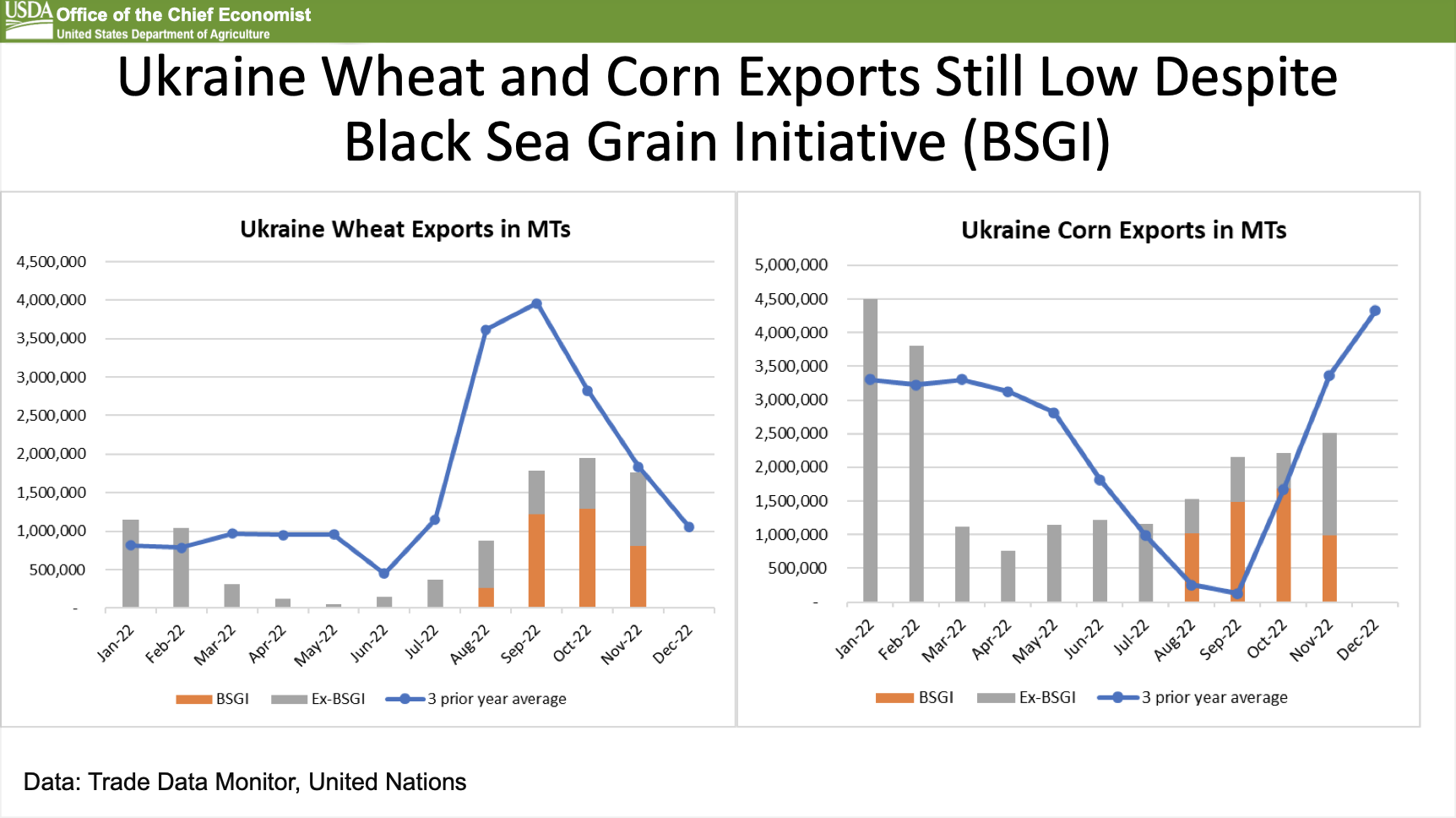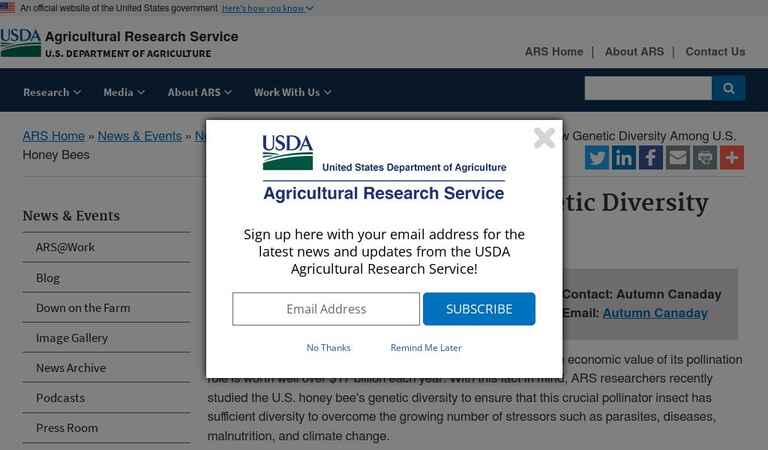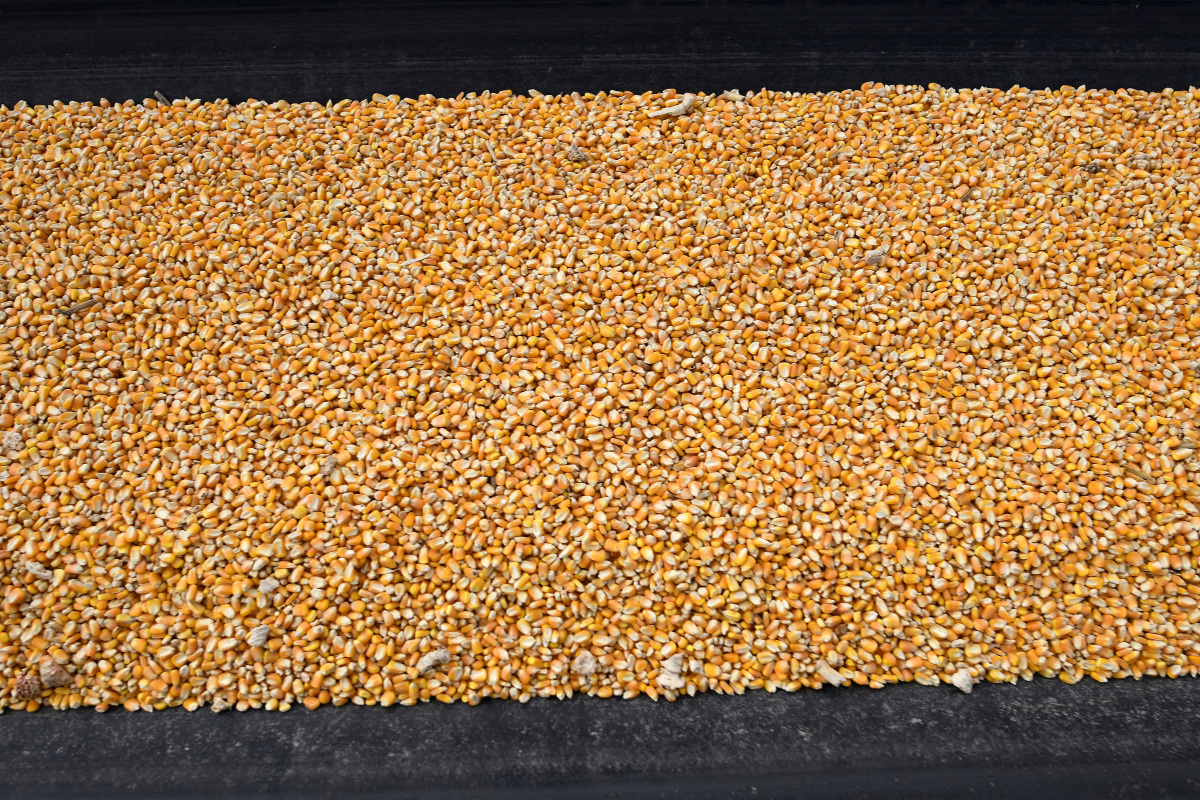 Nancy Kavazanjian
Nancy Kavazanjian
Topics: Wheat, Corn/Maize, Economics, USDA,
The 2023 Outlook for U.S. Agriculture From USDA’s Chief Economist
Speaking on Thursday at USDA’s Agricultural Outlook Forum, USDA Chief Economist Seth Meyer provided a broad outlook for U.S. agriculture. Today’s update provides an overview of key aspects of Dr.…
-
(0)
-
Bookmark
- Comments (0)
02/22/2023 SOURCE: www.usda.gov
HARRISONBURG, Va., Feb. 21, 2023 – U.S. Department of Agriculture (USDA) Secretary Tom Vilsack today announced the Biden-Harris Administration is investing $59 million across the country (PDF, 153 KB) to increase independent meat and poultry processing capacity, expand market opportunities for farmers and create jobs in rural areas.
Biden-Harris Administration Invests $59 Million to Strengthen Food Supply Chain and Rural Economies
-
(0)
-
Bookmark
- Comments. (0)
02/21/2023 SOURCE: brownfieldagnews.com
An ag economist says the total number of farms is declining and the size is increasing. The latest Farm and Land and Farms report from the USDA had average farm acres up 1 acre to 446 acres while the number of farms declined by around 10,000 to 2 million (for reference, in 2015 there were […]
USDA reports average farm size continues to grow - Brownfield Ag News
-
(0)
-
Bookmark
- Comments. (0)
-
(0)
-
Bookmark
- Comments (0)
02/16/2023 SOURCE: www.oklahomafarmreport.com
Today at the National Association of State Departments of Agriculture 2023 Winter Policy Conference, NASDA CEO Ted McKinney announced the organization is welcoming eight new members since the 2022 midterm elections. Two states elected new commissioners of agriculture, and governors in six states have announced the appointment of new NASDA members.“We are proud to create
The National Association of State Departments of Agriculture announces eight new members - Oklahoma Farm Report
-
(0)
-
Bookmark
- Comments. (0)
-
(0)
-
Bookmark
- Comments (0)
Topics: Corn/Maize, GMO's, USDA, Ag North America,
Mexico Opens Door For GM Corn In Animal Feed, Industrial Use
Mexico on Monday scrapped a deadline to ban genetically modified corn for animal feed and industrial use amid trade tensions with the United States, but retained plans to prohibit use of the grain for human consumption as well as the herbicide glyphosate.
-
(0)
-
Bookmark
- Comments (0)
02/14/2023 SOURCE: grist.org
A new law tasks the agency with creating resources for farmers, but it may not address their biggest concerns.
USDA to help farmers navigate the murky world of soil carbon offsets
-
(0)
-
Bookmark
- Comments. (0)
-
(1)
-
Bookmark
- Comments (0)
01/04/2023 SOURCE: drgnews.com
USDA is investing $9.5 million to support the scale-up of sustainable bioproduct manufacturing in the U.S. Thr...
US Department of Agriculture invests over $9 million in bioproduct development
-
(0)
-
Bookmark
- Comments. (0)










 Randy Krotz
Randy Krotz


